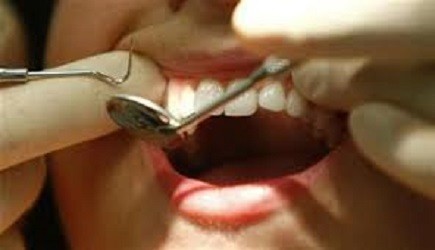
Now there is a relief for the people with tooth problem. Soon, doctors will switch from root canal drill procedures to painless laser treatment.
Researchers at Harvard University have found that if the cells on the inner side of the tooth are exposed to weak laser light, it can help trigger the growth of dentin - the substance that is involved in making of a tooth's structure.
Until now, the researchers have tested the experiment on mice and rats. But the process now tested on human cell cultures proved to be a successful one, according to Priveen Arany, an assistant clinical investigator at the National Institutes of Health.
"We're using resident stem cells — they are adult cells already present in the tooth pulp," Live Science quoted Arany.
The experiment was conducted by drilling two holes in a rodent's molar tooth to let the dentin expose to laser light. 12 weeks later, researchers found that the laser-treated hole showed tertiary dentin growth. However, there was no growth observed in the untreated hole.
The researcher explained that the laser light creates reactive oxygen species or ROS near the tissues. Certain amino acids gets stimulated by the ROS molecule, which helps in the production of growth factor called latent transforming growth factor beta, or TGF-beta. TGF-beta stimulates the growth of dentin.
Though, the new dentin is not the same kind of dentin the teeth had earlier, it is definitely good enough to chew with, explained Arany.
While the same technique tested on harvested human tooth cells was a success, more research is needed before the technique is applied on human patients. However, one of the critical point in the study is focusing the laser light on particular areas of the tooth to make sure the dentin regenerates in the same areas, which can be the challenge.
Patients need to undergo root canal when a tooth gets damaged or infected and when nothing much can be done to prevent it from getting worse apart from removing the tooth completely.
The long-term problem faced by the patients due to a root canal is that the treated tooth is deficit of blood supply to restore moisture and nutrients. As a result of which, the restored tooth is unable to take stress like that of a healthy one. However, if it is possible to restore a tooth's dentin, the tooth could remain feasible, said the researchers.
The detailed findings of the study were published online in the journal Science.

















